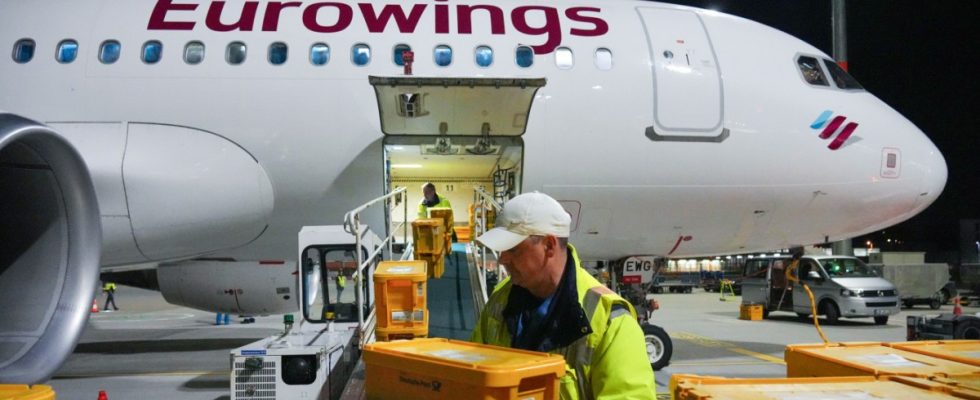On this Maundy Thursday shortly after midnight – many probably slept through the event – a piece of German history came to an end. This story began on September 1, 1961, reached its climax in 1996 and, unfortunately, it has to be said, slowly but steadily came to an end after the turn of the millennium.
For almost 63 years, boxes of letters were loaded onto planes in Germany every evening and transported across the country. The now deceased CSU politician Richard Stücklen was postmaster in the early 1960s – something like that existed at a time when sending letters was still a state responsibility. Stücklen signed a contract with Lufthansa, thereby creating the night airmail network.
In 1996, the year that saw the peak volume of nighttime airmail, the planes carried 430 tons of letters – every day, mind you. If one assumes that most letters weigh between 20 and 50 grams, then roughly ten to twenty million of them flew through the night back then. In 1996, 26 aircraft from various airlines were part of the Postal Service’s fleet. Lufthansa got out of letter transport in 2008. The fleet was gradually reduced to just six machines, which transport 53 tons of mail every night.
Incidentally, the jets that transported the letters through Germany until recently were not freight planes, but normal passenger planes.
(Photo: Soeren Stache/dpa)
But that too is over now. The post office has discontinued its night airmail network. On Thursday night, aircraft from the airlines Eurowings and Tui Fly took off in both directions for the last time on the Stuttgart-Berlin, Hanover-Munich and Hanover-Stuttgart routes.
In view of the climate crisis, it can no longer be justified that letters are transported by plane within Germany, says Marc Hirschfeld, head of the mail and parcel division at the postal company DHL. In the future, the post office says, the letters will be transported by trucks on the three long-distance routes mentioned above. This also causes emissions that are harmful to the climate, but not as many. The postal service says that by eliminating air transport, CO₂ emissions per letter are reduced by 80 percent.
In the future, the postal service will have the right to dawdle
Improving the carbon footprint, as good as that may be for the image, is only one reason for the company’s decision. It was at least as important for the postal service to save costs and remove a transport route from its portfolio that had already drastically lost its importance. Only around three percent of the volume of letters sent daily in Germany came from domestic airmail.
And there’s the matter of the right to dawdle, to put it bluntly. The federal government is currently working on a new postal law. It stipulates that the post office can take longer to deliver letters.
So far, the rule is: At least 80 percent of standard letters sent within Germany must arrive on the following working day, and at least 95 percent after two working days. Even now that doesn’t always work. The Federal Network Agency received more than 40,000 complaints about late letters last year.
The federal government wants to relieve the burden on the postal service: In the future, it should be sufficient if the 95 percent quota is met by the third working day and 99 percent of letters reach their recipient on the fourth working day at the latest. The postal service can achieve the less strict delivery deadlines without having to take expensive flights. And in general: Despite all the complaints about the slow pace of digitalization in Germany, letters have now largely been replaced by emails or other forms of online communication. More and more packages are being sent. The government’s draft law is also a response to this development.
By the way, Richard Stücklen, the postmaster general who established the night airmail network, became famous for something else years later. That was in 1984, Stücklen was now Vice President of the Bundestag and had turned off the microphone of a Green MP. A young MP named Joschka Fischer was outraged by this and expressed it as follows: “With respect, Mr. President, you are an asshole.” You can’t ask Stücklen more, but it would probably have been enough for him to go down in history as a long-time member of parliament and the inventor of postal flights.

